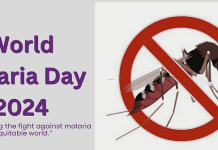
Pharmacists remain a significant group of stakeholders who ensure that better health outcomes are attained in communities all over the world. Their collective contribution to the health sector remains indispensable underpinnings to the desirable health outcomes of any society. As custodians of drugs, they are usually the first to be contacted by patients whenever they have issues with their health. The foregoing and more were the views of Dr John Ejezie, president of the Nigeria Association of Foreign Trained Pharmacists (NAFTraPH) during an Exclusive interview with Patrick Iwelunmor at the 4th national conference of the association held at the Sheraton Hotel, Lagos. EXCERPTS:
With regard to public health in Nigeria, what would you say is the primary role of pharmacists?
Pharmacy itself is a major component of public health. When you talk public health, you are talking about a very broad field. Pharmacists have a big role to play in public health because what they do impact lives and wellbeing in ways that a lot of us have not imagined before.
Take, for instance, the fact that Pharmacy is not all about community practice. We have community practice, where people get quality medicines in their own environment. An average citizen visits the pharmacy daily or weekly or even monthly. Whenever members of a family are sick, the community pharmacist is usually the first port of call. Some people don’t even go to hospital; they prefer to go to the pharmacy when they are sick.
Pharmacists also play a role in ensuring the quality of drugs dispensed. This role impacts public health by making sure that the safety of the drugs is guaranteed. You know, it would be wrong to dispense drugs that would harm the patient. And so, the pharmacist is very important in safeguarding the health of the public.
In terms of pharmaceutical production, the pharmacist also ensures that quality drugs are pushed out to the consuming public through quality control measures. In terms of regulation and distribution, the pharmacist also plays vital roles in making sure that drugs are handled properly, bearing in mind the fact that medicines are very delicate substances, which have specified storage and transportation temperatures. Take, for instance, insulin, which you have to keep refrigerated always, until you start using it.
When you look at all these, you will agree with me that pharmacists play very huge roles in enhancing good outcomes in public health. When we talk about vaccination, which is the bedrock of public health, pharmacists are now playing key roles; they have been authorised to administer vaccines in Nigeria. Pharmacists are a crucial component in enhancing public health.
It was recently reported that over 5000 Nigerian pharmacists have left the country in search of greener pastures. What would you say is the reason for this development?
That’s a very interesting question. I am actually a diasporan myself and I am not going to be hypocritical about it. What I can tell you, just like any citizen, is that I encourage professionals, not only in Pharmacy, to bring whatever value they can offer down to their home countries.
When it comes to people migrating for whatever reason, it is not up to me to tell anybody where to live or where not to live. It’s everybody’s prerogative to choose where they want to live. I leave it to individuals to choose where they want to live but I let them know that they should not forget where they are coming from, no matter where they choose to live. They should make sure that they are extending help back home.
Is there anything NAFTraPH is doing to address the brain drain syndrome in the Nigerian health sector?
Dr Funmi Ajayi talked about converting brain drain to brain gains. Definitely, it is like a reverse reaction where people who have travelled out to acquire better knowledge return home to invest such knowledge and better their communities. They can choose to just come visiting to better the health outcomes of their communities.
Right now, the world is a global village. Even people who have no Nigerian heritage can still come and help here. We can proffer help to humanity across the world. It doesn’t matter where you are coming from. And again, it is even more of a sense of responsibility if you can bring your acquired knowledge down to your origin, to help improve the health and wellness of the people.
In what ways is NAFTraPH collaborating with other pharmacy-based groups to enhance pharmacy practice in Nigeria?
NAFTraPH is made up of foreign-trained pharmacists who also come back home to face challenges. Interestingly, in facing these challenges, you must have the will and identify with people who are interested in partnering with you. We always look for the right partnerships that can be beneficial to our aims and aspirations. We are always looking for those who are willing, be they pharmaceutical or non-pharmaceutical.
The problems bedevilling society, even with regards to medication, is beyond what only Pharmacy can handle. For instance, in storing medicines, you need the appropriate temperatures. The person who keeps that storage cool and the one that ensures the safety of the place may not be pharmacists. Yes, you need a pharmacist to supervise such but you also need other ancillary services to balance the equation.
As long as partnership is concerned, we are willing to partner with anyone who is willing to partner with us for the common good. We do not discriminate, as long as your vision aligns with ours and as long as you have plans to better the health outcomes of your community.
This is the fourth edition of your annual national conference. What should we be expecting from NAFTraPH in the coming years?
We envisage more growth, more involvement in this community-based work that we are doing. It is a passion that is propelled by a strong vision. We also help our foreign-trained pharmacists who have come back home by helping to reintegrate them into the larger society.
Quite frankly, it is very easy to get lost after you have been away for some time. We help them to get into communities where they can get involved and bring their own values and strength to bear, so that we can work in a synergistic fashion to help, with better health outcomes, while improving the health indicators.
Any advice for the Nigerian government and other stakeholders on the way forward for the health sector in the country?
We all know what is right. I wouldn’t be advising government on what to do. They know what is right. Everybody knows what to do, quite frankly, and words are cheap. I am not a governmental person and I am not going to get into telling government what to do. We all know what is right.
I know there are people who are truly interested in enhancing the health and wellness of their people. I always tell such people to do what is right. We are a diverse population and so, we shouldn’t allow that diversity stand in the way of doing good for our people.
Not even government should stop you from doing good. You can do good to your community without government; involvement. Just do what you need to do. Help your neighbour, help your community. Government knows what is right. They should do it.













